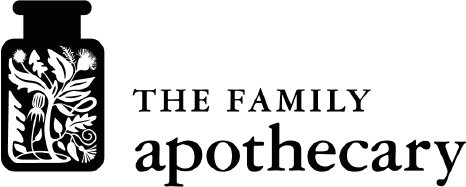Polycystic Ovarian Syndrome (PCOS)
Poly cystic ovarian syndrome (PCOS) is not an illness where cysts are present on the ovaries. Many women may have cysts present on their ovaries but they do not have PCOS.
The 4 different types of PCOS are:
- Insulin resistant PCOS – where insulin levels are high, affecting your menstruation and hormones.
- Inflammatory PCOS – chronic inflammation causing the ovaries to produce excess testosterone.
- Post pill PCOS (temporary) – a temporary rise in androgens when coming off the pill.
- Adrenal PCOS – Elevation of the androgen DHEAS but not elevated testosterone. DHEAS is produced in the adrenal glands and is the result of an abnormal response to stress.
When it comes to determining a diagnosis of PCOS, Rotterdam’s criteria lists the clinical measures that consist of 3 signs and symptoms:
- The absence of menses or scanty menses
- A high level of male sex hormone
- Multiple cavities in the ovaries that are evident on ultrasound.
The main presenting symptoms in clinic are, absence or irregular periods, obesity, skin changes such as acne and hirsutism (male pattern hair growth) and anovulation (no egg released at ovulation).
Current research explores the relationship between the gut microbiome and insulin resistant PCOS, androgen excess and inflammation, all conditions that contribute to the pathogenesis of PCOS.
Our Approach to PCOS
The homeopathic approach always considers the whole person and so the approach to working with PCOS is made on the individual symptoms of the client. Remedies that are commonly prescribed for PCOS:
- Natrum muriaticum – irregular periods with androgen excess – especially related to grief around relationships
- Sepia – hormonal imbalances that are characterised long periods of stress
- Folliculinum – hormonal imbalances especially after the oral contraceptive pill
- Lachesis – Heavy bleeding associated with PCOS
When we prescribe these remedies we are matching the clients symptoms with the symptoms produced by a remedy in controlled conditions. For example the Sepia remedy personality usually is synonymous with a woman who is exhausted (adrenal fatigue), experiences pre-menstrual symptoms such as anger and moodiness, periods are late and scanty and they may experience constipation (1)
Other areas to address:
- Insulin resistance – managing blood sugars through diet and homeopathic remedies.
- Gut Health – managing dysbiosis, and any reduction in integrity of the gut lining by addressing nutrition and inflammation.
- Acne – addressed through hormone balancing and homeopathic remedies.
- Weight gain – addressing the gut health will assist in supporting this.
If you would like to know how we can help you, you can book a free 20 minute consultation here.
Endometriosis
Endometriosis is a chronic health condition where cells that are similar to those of the lining of the uterus (endometrial cells) proliferate in other parts of the body, particularly outside the uterus and possibly on the intestines and in the pelvic cavity.
These cells are receptive to the usual hormonal changes of a woman’s cycle, and therefore bleed at the same time as your menstrual period. This bleeding can cause pain and shedding of tissue in areas of your body where this should not be happening.
Other symptoms you may experience are :
- pain on going to the toilet
- constipation or diarrhoea
- heavy bleeding
- frequent urination
There are many traditional practitioners that believe that endometriosis is caused by oestrogen, however it is in fact that endometriosis is stimulated by oestrogen. Therefore it does play a role in the expression of endometriosis, but it is not the cause.
Endometriosis is now known as inflammatory and immune disease! Therefore addressing inflammation and immunity (always considering gut health) are very important areas if hoping to resolve symptoms. You can have a laparoscopy to temporarily reduce symptoms, however it does not address the underlying cause… and you know that we are much more in favour of addressing causes and finding resolution!!
In terms of treatment, it is important to note that taking the oral contraceptive pill is not a form of treatment and a Cochrane review reveals that there is no evidence that the pill is effective in treating endometriosis. (2)
One of the understandings of endometriosis is that it relates to retrograde menstruation – which is when the endometrial tissue flows back out of the fallopian tubes as well as exiting through the vagina. The current research shows that retrograde menstruation is common among all women, leading us to the question – why are women with endometriosis suffering from the displacing of the endometrial tissue? Many researchers are investigating the role of the immune system in not performing its duty in being able to remove these cells from where they are lodging themselves outside of the uterus. (3)
Predispositions to endometriosis include genetics and epigenetics (through exposure to toxins), presence of bacterial toxins in the pelvis and also related to a nickel allergy. (4)
Our Approach to Endometriosis
So how can The Family apothecary and homeopathy help?
- Address underlying causes and immune dysfunction – this means addressing gut health and the presence of toxins and heavy metals.
- Address causes of stress – which have an effect on any pathogenesis of disease.
- Address the gut – high levels of candida are known to affect the immune system and chronic candidiasis can be related to endometriosis onset.
- Remove toxins as well as address vitamin and mineral imbalances in the body.
- Address foods in the diet that may be causing inflammation (ie dairy and gluten).
- Give symptomatic remedies for relief of pain.
- Constitutional homeopathic remedies to provide holistic support – mind, body and spirit.
Addressing symptoms with homeopathic remedies supports the vital force/immunity as opposed to working against it, leading to an overall healthier physical body.
Important homeopathic remedies for endometriosis include:
- Chamomilla – for pain associated with ovulation or menstruation. Shooting pains and cramping in lower abdomen
- Folliculinum – for addressing sensitivity associated with oestrogen
- Sabina or Aletris – for addressing heavy bleeding
References:
- Vermeulen F, Concordant Materia Medica Nov 2000, Emryss publishers Rotterdam
- (2)Brown J, Crawford TJ, Datta S, Prentice A 2018, Modern combined oral contraceptives for treatment of pain associated with endometriosis. Cochrane https://www.cochrane.org/CD001019/MENSTR_modern-combined-oral-contraceptives-treatment-pain-associated-endometriosis
- Ulukus M, Arici A, Involvement of immune cells in the pathogenesis of Endometriosis, J Obstet Gynaecol Res 2018 Feb;44(2):191-198. doi: 10.1111/jog.13559 https://pubmed.ncbi.nlm.nih.gov/29316073/
- Dr Lara Briden https://www.larabriden.com/endometriosis-treat-the-immune-system/





